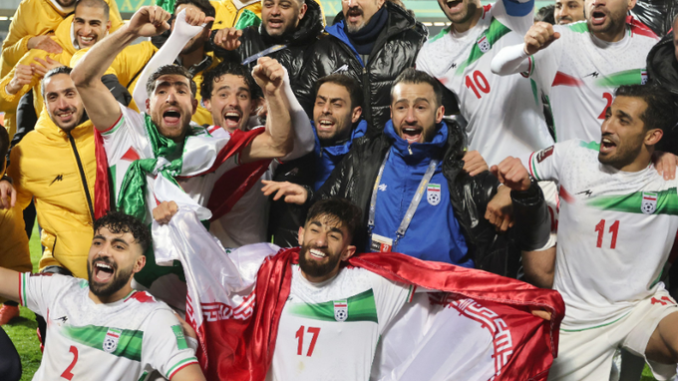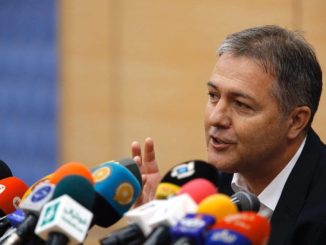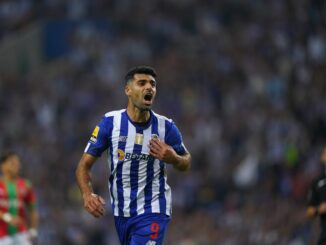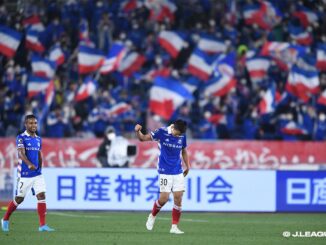
Following their 1-0 victory over bitter rivals Iraq on Thursday, Iran became the second Asian nation to guarantee participation at the FIFA World Cup in Qatar later this year.
Scenes of jubilation and pride broke out in the Azadi Stadium, and outside on the streets of Tehran as referee Chris Beath blew for full time in what appeared to have been a less than comfortable result, amidst a typically comfortable performance.
In what will be their third successive World Cup appearance, Iran’s journey from continental outsiders to mainstays of the elite has been swift in its execution.
The muted reaction to their qualification for Qatar, as opposed to their emotional one for Brazil back in 2013 is instantly noticeable, however, illustrating the strides made what many still consider the best team in Asia.
The shift in expectation and feeling hasn’t all been to do with previous achievements. This is the first qualification campaign without legendary Carlos Queiroz at the helm.
Queiroz’s stature in Iranian football transcended that of merely the national team coach, to that of an unequivocal symbol of a nation’s sport. His influence across politics, culture and beyond made a campaign for World Cup qualification feel more like a freedom fight against the establishment.
This time around, the stage couldn’t have seen a starker change in its setting. Led by the unassuming Dragan Skocic, Iran are growingly unrecognisable to the full hearted, rugged Team Melli dragged through qualification eight years ago.
Back then, the blueprint of defensive stability, and reactionary conservatism matched their footballing stature and their coach’s comfort zone. Rekindling memories of that famous Reza Ghoochannejhad breakaway goal in Korea to seal qualification brings back pictures that will last for generations to come; regrettably Mehdi Taremi’s winner on Thursday, may be forgotten by the end of the week.
In many ways that transition, from underdog warrior – fighting against the world, the AFC, their own football federation, and anyone who stood in their way – unified a team early in their development, magnifying the successes along the road. As the project rolled on, however, that sort of passion became harder and harder to harness over longer, drawn out periods.
By the time Queiroz quit in 2019, following a regrettably poor Asian Cup finals in UAE that they were tipped by many to win, the transition from outside nuisance to continental powerhouses had been fully realised. A new focus, away from the coach, away from the infighting and injustice needed to be created. One arguably out of Queiroz’s reach.
While it’s undeniable that his presence has been missed at times this campaign; early wobbles that nearly saw Iran derail in World Cup qualification under the naïve and ill-equipped Marc Wilmots inevitably had Team Melli fans searching for a time machine.
Yet, Skocic, a professional, flexible coach has become the calming and guiding influence this group quite clearly required. Four wins from four in June’s Round 2 centralised culmination dragged them over the line, while an uncompromising relentlessness in Round 3 proved Team Melli were more than the exceptionally talented individual players on the pitch.
Many have pointed to a so-called easy group draw.
While Group A has barely ignited past a steady simmer, Iran, and their fellow pacesetters, regular opponents at this stage South Korea, have much to do with that.
UAE were in red hot form last summer, flooded with new exciting talent; Syria, the 2018 wildcard who had blitzed through Round 2 at a canter; fierce rivals Iraq who had already beaten Iran this cycle and an ever-improving Lebanon all had a claim to, at the very least, keep Iran to their A-game if they wanted to progress.
While Syria and Iraq have hit the buffers, UAE and Lebanon have lived up to being stern opponents, two teams Iran have endured but conquered. That alongside a credible, professionally worked 1-1 draw with Korea at the Azadi, roundly encapsulates how Skocic has approached this campaign.
In many ways, as the plaudits rain in on Team Melli following this recent qualification confirmation, the fact many are talking expectantly of this achievement, and of the rich talents this squad now possesses, Skocic’s name not being centre stage proves a lot about his methods.
The “team” ethic created under Queiroz was built on defence, with attacking output treated as a bonus; only recording on average one goal per game in each of the last two final round qualifications.
This year, output has been prioritised; 12 goals in seven matches in Round 3 has only been beaten by Australia thus far. The likes of Sardar Azmoun, Mehdi Taremi, Alireza Jahanbakhsh and Karim Ansarifard have bolstered what is now regarded as the best attacking setup in Asia.
How this differs to the famed 2014 cohort is often exaggerated, while the current crop could still break new ground, are they really streets ahead of the likes of Javad Nekounam, Ashkan Dejagah, Andranik Teymourian and Ghoochannejhad?
What muted celebrations there are taking place in football circles across Asia now puts greater expectation of progression in Qatar. Heading into their third successive tournament, they still have the strong defence as a foundation, but now with a potent attack to match, with options to mix up their approach when required.
While the team unity of yesteryear may have been dialled down a tad along the Road to Qatar, the understanding of where they stand in the continent has been amplified. As Iran prepare to construct a World Cup battle plan, Team Melli fans have grown to appreciate the wisdom that has been honed by their unfashionable but quietly effective Croatian coach.
Photo: FIFA
Listen to Episode 77 of The Asian Game podcast as we discuss all the latest from Asian Qualifiers




